Books on consciousness
A list of books relating to the hard problem of consciousness. Regularly updated cos I keep finding new stuff all the time.
A list of books relating to the hard problem of consciousness. Regularly updated cos I keep finding new stuff all the time.
2002
 Raymond Martin & John Barresi (eds.)
Raymond Martin & John Barresi (eds.)
Personal Identity
(Blackwell 2002)
A collection of important essays from two generations of debate along with a detailed historical introduction. Does identity matter as much as survival? Is survival based on psychological continuity or on the animal body? Does the self last a lifetime or for shorter periods? Should ethical issues constrain our conception of a person? See Wiley | Amazon | Google
 John Perry
John Perry
Identity, Personal Identity, and the Self
(Hackett 2002)
This volume collects a number of Perry’s classic works on personal identity as well as four new pieces, ‘The Two Faces of Identity,’ ‘Persons and Information,’ ‘Self-Notions and The Self,’ and ‘The Sense of Identity.’ Perry’s introduction puts his own work and that of others in the context of philosophical studies of mind and language over the past thirty years. See Hackett | Amazon | Google
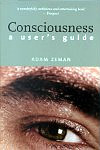 Adam Zeman
Adam Zeman
Consciousness - A User’s Guide
(Yale 2002)
Neurologist Adam Zeman offers an enlightening view of consciousness seen through the lenses of science and philosophy, enhancing his discussion with case studies of neurological patients and observations of young children’s expanding mental worlds. See Yale | Google | Amazon | Raymond Tallis review (pdf)
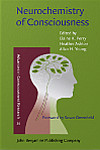 Perry, Ashton & Young (eds.)
Perry, Ashton & Young (eds.)
Neurochemistry of Consciousness: Neurotransmitters in Mind
(John Benjamins 2002)
A pioneering exploration of the role of neurotransmitters in conscious awareness. The aim is to identify common neural denominators of conscious awareness, informed by the neurochemistry of natural, drug-induced and pathological states of consciousness. Chemicals such as acetylcholine and dopamine, which bridge the synaptic gap between neurones, are the ‘neurotransmitters in mind’ of the volume. Essential reading for all who believe that unravelling mechanisms of consciousness must include these vital systems of the brain. See John Benjamins | Amazon | Google
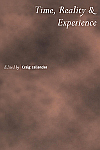 Craig Callender (ed.)
Craig Callender (ed.)
Time, Reality and Experience
(Cambridge 2002)
Why does time seem to flow in one direction? Can we influence the past? Is only the present real? Does relativity conflict with our common understanding of time? How does time relate to free will? Could science do away with time? In this collection of original articles, eminent philosophers propose novel answers to these and other questions. See Cambridge | Amazon | Google
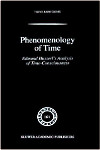 Toine Kortooms
Toine Kortooms
Phenomenology of Time: Edmund Husserl’s Analysis of Time-Consciousness
(Kluwer 2002)
Husserl occupied himself with the analysis of time-consciousness throughout his life. The first stage consists of a lecture manuscript from 1905; the second stage consists of the so-called Bernau manuscripts — research manuscripts that were written in 1917 and 1918; and the final stage consists of the so-called C-manuscripts — research manuscripts that were written in the late 1920s and the early 1930s. See Springer | Amazon | Google
 Owen Flanagan
Owen Flanagan
The Problem of the Soul: Two Visions of Mind and How to Reconcile Them
(Basic Books 2002)
Traditional ideas about the basic nature of humanity are under attack as never before. The very attributes that make us human—free will, the permanence of personal identity, the existence of the soul—are being undermined and threatened by the current revolution in the science of the mind. Flanagan shows the way out of this seemingly intractable paradox and demonstrates that we need not give up our ideas of moral responsibility and personal freedom in order to have an empirically sound view of the human mind. See Amazon | Google
 Joseph Almog
Joseph Almog
What Am I? Descartes and the Mind-Body Problem
(Oxford 2002)
How can mind and body be independent entities, yet essentially joined within a human being? For centuries, philosophers have considered this classic philosophical puzzle. Now, in this compact, engaging, and long-awaited work, Joseph Almog closely decodes Descartes’s solution to the puzzle, on which the trio of human mind, body, and being are essentially interdependent yet remain each a genuine individual subject. See Oxford | Amazon | Google
 Gregory McCulloch
Gregory McCulloch
The Life of the Mind: An Essay on Phenomenological Externalism
(Routledge 2002)
McCulloch presents an original and striking conception of the mind and its place in nature. In a spirited and rigorous attack on most of the orthodox positions in contemporary philosophy of mind, he argues that the life of the mind will never be understood until we properly understand the subject’s essential embodiment and immersion in the world, until we give up the idea that intentionality and phenomenology must be understood separately. See Routledge | Google
 George Mandler
George Mandler
Consciousness Recovered: Psychological Functions and Origins of Conscious Thought
(John Benjamins 2002)
The integrated approach to the psychology of consciousness arises out of Mandler’s 1975 paper, ‘Consciousness: respectable, useful, and probably necessary,’ that started a flood of interest in the subject. The book starts here, followed by a psychological/evolutionary discussion, and a historical presentation of relevant functions of consciousness, from memory to attention to emotion, drawing in part on Mandler’s publications between 1975 and 2000. See John Benjamins | Google
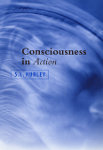 Susan L. Hurley
Susan L. Hurley
Consciousness in Action
(Harvard 2002)
Hurley sheds new light on consciousness by examining its relationships to action. Considering the role of agency in the unity of consciousness, she argues that perception and action are deeply interdependent. The self no longer lurks hidden between perceptual input and behavioral output, but reappears embodied and embedded in its environment. Hurley traces these themes from Kant and Wittgenstein to intriguing recent work in neuropsychology. See Harvard | Google
 D. Heyer & R. Mausfeld (eds.)
D. Heyer & R. Mausfeld (eds.)
Perception and the Physical World
(Wiley 2002)
Perception is at the interface of the mental and the physical. It cannot be understood as simply providing some kind of picture of the physical world; rather the perceptual system relies on built-in interpretations and exhibits inference-like and constructive-like properties. In this book, a field of renowned experts focus on foundational and conceptual issues concerning the nature of perception, particularly unconscious inference, and highlight recent advances in the field. See Wiley | Google | Questia
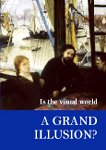 Alva Noë (ed.)
Alva Noë (ed.)
Is the Visual World a Grand Illusion?
(Imprint 2002)
There is a traditional scepticism about whether the world “out there” really is as we perceive it. A new breed of hyper-sceptics now challenges whether we even have the perceptual experience we think we have. According to these writers, perceptual consciousness is a kind of false consciousness. This view grows out of the discovery of such phenomena as change blindness and inattentional blindness, which show that we can all be quite blind to changes taking place before our very eyes. See Imprint | Google
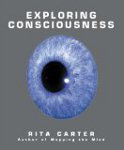 Rita Carter
Rita Carter
Exploring Consciousness
(Univ. California Press 2002)
Carter ponders the nature, origins, and purpose of consciousness in this fascinating inquiry. Building on her bestselling book Mapping the Mind, she considers whether consciousness is merely an illusion, a by-product of our brain’s workings, some as yet inexplicable feature of the material universe or the very fundament of reality. Little, she discovers, is as it first seems. See Univ. Calif. Press | Google
 B. Saunders & Van Jaap Brakel (eds.)
B. Saunders & Van Jaap Brakel (eds.)
Theories, Technologies, Instrumentalities of Color
(Univ. Press of America 2002)
This collection is the outcome of a workshop held in Leuven, Belgium in May 2000. With contributions from philosophy, history, classics, psychology, and anthropology, the contributors discuss the distinctions, concepts, assumptions and warrants taken for granted by the phenomenon of "color." See U Press America | Google
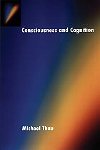 Michael Thau
Michael Thau
Consciousness and Cognition
(Oxford 2002)
Our thinking about consciousness and cognition is dominated by a certain natural conception that dictates what we take the fundamental questions to be as well as the form their answers must take. Thau shows that this conception is riddled with errors and that we must reconceive the nature of consciousness, cognition and the fundamental problems they pose. See Oxford | Google | Amazon
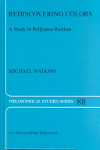 Michael Watkins
Michael Watkins
Rediscovering Colors: A Study in Pollyanna Realism
(Springer 2002)
Watkins endorses the Moorean view that colors are simple, non-reducible properties of objects, breaking from what has become the received view that either colors are reducible to certain properties of interest to science, or else nothing is really colored. What is novel about the work is that Watkins, unlike other Mooreans, takes seriously the metaphysics of colors. He provides an account of what colors are, how they are related to the physical properties on which they supervene, and how colors can be causally efficacious without the threat of causal overdetermination. Along the way, he provides novel accounts of normal conditions and non-human color properties. See Springer | Google | Amazon
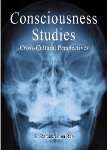 K. Ramakrishna Rao
K. Ramakrishna Rao
Consciousness Studies: Cross-Cultural Perspectives
(McFarland 2002)
This cross-cultural examination first explores the varieties of conscious experience and the attempts to understand consciousness in the Western scholarly and scientific tradition. The next section deals with Eastern spiritual traditions and how they differ with and complement the Western viewpoints. In the final chapters the author attempts to reconcile the two traditions. See McFarland | Google | Amazon
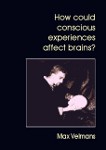 Max Velmans
Max Velmans
How Could Conscious Experiences Affect Brains?
(Imprint 2002)
There is no generally accepted theory of how the mind interacts with the body. Max Velmans presents a non-reductive solution to the problem, in which ‘conscious mental control’ includes ‘voluntary’ operations of the preconscious mind. On this account, biological determinism is compatible with experienced free will. Velmans’ theory is tested by nine critics: Ron Chrisley, Todd Feinberg, Jeffrey Gray, John Kihlstrom, Sam Rakover, Ramakrishna Rao, Aaron Sloman, Steve Torrance and Robert Van Gulick. See Imprint | Google | Amazon
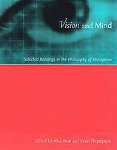 Alva Noë & Evan Thompson (eds.)
Alva Noë & Evan Thompson (eds.)
Vision and Mind
(MIT 2002)
How does the brain bridge the gap between what is given to the visual system and what is experienced by the perceiver? The orthodox view is that the brain builds up representations of relevant figures of the environment on the basis of information encoded by the sensory receptors. Some of the essays in this book defend the orthodoxy; most criticize it; and some propose alternatives to it. See M.I.T. Press | Google | Amazon
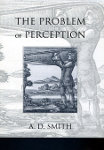 A. D. Smith
A. D. Smith
The Problem of Perception
(Harvard 2002)
In a major contribution to the theory of perception, A. D. Smith presents a truly original defense of direct realism – the view that in perception we are directly aware of things in the physical world. See Harvard | Google | Amazon
 David Papineau
David Papineau
Thinking about Consciousness
(Oxford 2002)
The relation between subjective consciousness and the physical brain is widely regarded as the last mystery facing science. Papineau argues that consciousness seems mysterious not because of any hidden essence, but only because we think about it in a special way. See Oxford University Press | Amazon | Google Books.
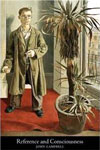 John Campbell
John Campbell
Reference and Consciousness
(Oxford 2002)
Campbell investigates how consciousness of the world explains our ability to think about the world; how our ability to think about objects we can see depends on our capacity for conscious visual attention to those things. See Oxford University Press | Amazon
 Steven M. Lehar
Steven M. Lehar
The World in Your Head: A Gestalt View of the Mechanism of Conscious Experience
(Psychology Press 2002)
Rather than examining the brain and nervous system to see what they tell us about the mind, Lehar examines conscious experience to see what it tells us about the brain. He argues that the world we see is not the real world itself, but merely a miniature virtual-reality replica in an internal representation. Perception is somewhat like a guided hallucination, based on sensory stimulation. Lehar explores this insight and draws out its rich implications. See Psychology Press | Amazon | Google

Personal Identity
(Blackwell 2002)
A collection of important essays from two generations of debate along with a detailed historical introduction. Does identity matter as much as survival? Is survival based on psychological continuity or on the animal body? Does the self last a lifetime or for shorter periods? Should ethical issues constrain our conception of a person? See Wiley | Amazon | Google

Identity, Personal Identity, and the Self
(Hackett 2002)
This volume collects a number of Perry’s classic works on personal identity as well as four new pieces, ‘The Two Faces of Identity,’ ‘Persons and Information,’ ‘Self-Notions and The Self,’ and ‘The Sense of Identity.’ Perry’s introduction puts his own work and that of others in the context of philosophical studies of mind and language over the past thirty years. See Hackett | Amazon | Google

Consciousness - A User’s Guide
(Yale 2002)

Neurologist Adam Zeman offers an enlightening view of consciousness seen through the lenses of science and philosophy, enhancing his discussion with case studies of neurological patients and observations of young children’s expanding mental worlds. See Yale | Google | Amazon | Raymond Tallis review (pdf)

Neurochemistry of Consciousness: Neurotransmitters in Mind
(John Benjamins 2002)
A pioneering exploration of the role of neurotransmitters in conscious awareness. The aim is to identify common neural denominators of conscious awareness, informed by the neurochemistry of natural, drug-induced and pathological states of consciousness. Chemicals such as acetylcholine and dopamine, which bridge the synaptic gap between neurones, are the ‘neurotransmitters in mind’ of the volume. Essential reading for all who believe that unravelling mechanisms of consciousness must include these vital systems of the brain. See John Benjamins | Amazon | Google

Time, Reality and Experience
(Cambridge 2002)

Why does time seem to flow in one direction? Can we influence the past? Is only the present real? Does relativity conflict with our common understanding of time? How does time relate to free will? Could science do away with time? In this collection of original articles, eminent philosophers propose novel answers to these and other questions. See Cambridge | Amazon | Google

Phenomenology of Time: Edmund Husserl’s Analysis of Time-Consciousness
(Kluwer 2002)

Husserl occupied himself with the analysis of time-consciousness throughout his life. The first stage consists of a lecture manuscript from 1905; the second stage consists of the so-called Bernau manuscripts — research manuscripts that were written in 1917 and 1918; and the final stage consists of the so-called C-manuscripts — research manuscripts that were written in the late 1920s and the early 1930s. See Springer | Amazon | Google

The Problem of the Soul: Two Visions of Mind and How to Reconcile Them
(Basic Books 2002)

Traditional ideas about the basic nature of humanity are under attack as never before. The very attributes that make us human—free will, the permanence of personal identity, the existence of the soul—are being undermined and threatened by the current revolution in the science of the mind. Flanagan shows the way out of this seemingly intractable paradox and demonstrates that we need not give up our ideas of moral responsibility and personal freedom in order to have an empirically sound view of the human mind. See Amazon | Google

What Am I? Descartes and the Mind-Body Problem
(Oxford 2002)
How can mind and body be independent entities, yet essentially joined within a human being? For centuries, philosophers have considered this classic philosophical puzzle. Now, in this compact, engaging, and long-awaited work, Joseph Almog closely decodes Descartes’s solution to the puzzle, on which the trio of human mind, body, and being are essentially interdependent yet remain each a genuine individual subject. See Oxford | Amazon | Google

The Life of the Mind: An Essay on Phenomenological Externalism
(Routledge 2002)
McCulloch presents an original and striking conception of the mind and its place in nature. In a spirited and rigorous attack on most of the orthodox positions in contemporary philosophy of mind, he argues that the life of the mind will never be understood until we properly understand the subject’s essential embodiment and immersion in the world, until we give up the idea that intentionality and phenomenology must be understood separately. See Routledge | Google

Consciousness Recovered: Psychological Functions and Origins of Conscious Thought
(John Benjamins 2002)
The integrated approach to the psychology of consciousness arises out of Mandler’s 1975 paper, ‘Consciousness: respectable, useful, and probably necessary,’ that started a flood of interest in the subject. The book starts here, followed by a psychological/evolutionary discussion, and a historical presentation of relevant functions of consciousness, from memory to attention to emotion, drawing in part on Mandler’s publications between 1975 and 2000. See John Benjamins | Google

Consciousness in Action
(Harvard 2002)
Hurley sheds new light on consciousness by examining its relationships to action. Considering the role of agency in the unity of consciousness, she argues that perception and action are deeply interdependent. The self no longer lurks hidden between perceptual input and behavioral output, but reappears embodied and embedded in its environment. Hurley traces these themes from Kant and Wittgenstein to intriguing recent work in neuropsychology. See Harvard | Google

Perception and the Physical World
(Wiley 2002)
Perception is at the interface of the mental and the physical. It cannot be understood as simply providing some kind of picture of the physical world; rather the perceptual system relies on built-in interpretations and exhibits inference-like and constructive-like properties. In this book, a field of renowned experts focus on foundational and conceptual issues concerning the nature of perception, particularly unconscious inference, and highlight recent advances in the field. See Wiley | Google | Questia

Is the Visual World a Grand Illusion?
(Imprint 2002)

There is a traditional scepticism about whether the world “out there” really is as we perceive it. A new breed of hyper-sceptics now challenges whether we even have the perceptual experience we think we have. According to these writers, perceptual consciousness is a kind of false consciousness. This view grows out of the discovery of such phenomena as change blindness and inattentional blindness, which show that we can all be quite blind to changes taking place before our very eyes. See Imprint | Google

Exploring Consciousness
(Univ. California Press 2002)
Carter ponders the nature, origins, and purpose of consciousness in this fascinating inquiry. Building on her bestselling book Mapping the Mind, she considers whether consciousness is merely an illusion, a by-product of our brain’s workings, some as yet inexplicable feature of the material universe or the very fundament of reality. Little, she discovers, is as it first seems. See Univ. Calif. Press | Google

Theories, Technologies, Instrumentalities of Color
(Univ. Press of America 2002)
This collection is the outcome of a workshop held in Leuven, Belgium in May 2000. With contributions from philosophy, history, classics, psychology, and anthropology, the contributors discuss the distinctions, concepts, assumptions and warrants taken for granted by the phenomenon of "color." See U Press America | Google

Consciousness and Cognition
(Oxford 2002)

Our thinking about consciousness and cognition is dominated by a certain natural conception that dictates what we take the fundamental questions to be as well as the form their answers must take. Thau shows that this conception is riddled with errors and that we must reconceive the nature of consciousness, cognition and the fundamental problems they pose. See Oxford | Google | Amazon

Rediscovering Colors: A Study in Pollyanna Realism
(Springer 2002)

Watkins endorses the Moorean view that colors are simple, non-reducible properties of objects, breaking from what has become the received view that either colors are reducible to certain properties of interest to science, or else nothing is really colored. What is novel about the work is that Watkins, unlike other Mooreans, takes seriously the metaphysics of colors. He provides an account of what colors are, how they are related to the physical properties on which they supervene, and how colors can be causally efficacious without the threat of causal overdetermination. Along the way, he provides novel accounts of normal conditions and non-human color properties. See Springer | Google | Amazon

Consciousness Studies: Cross-Cultural Perspectives
(McFarland 2002)
This cross-cultural examination first explores the varieties of conscious experience and the attempts to understand consciousness in the Western scholarly and scientific tradition. The next section deals with Eastern spiritual traditions and how they differ with and complement the Western viewpoints. In the final chapters the author attempts to reconcile the two traditions. See McFarland | Google | Amazon

How Could Conscious Experiences Affect Brains?
(Imprint 2002)
There is no generally accepted theory of how the mind interacts with the body. Max Velmans presents a non-reductive solution to the problem, in which ‘conscious mental control’ includes ‘voluntary’ operations of the preconscious mind. On this account, biological determinism is compatible with experienced free will. Velmans’ theory is tested by nine critics: Ron Chrisley, Todd Feinberg, Jeffrey Gray, John Kihlstrom, Sam Rakover, Ramakrishna Rao, Aaron Sloman, Steve Torrance and Robert Van Gulick. See Imprint | Google | Amazon

Vision and Mind
(MIT 2002)

How does the brain bridge the gap between what is given to the visual system and what is experienced by the perceiver? The orthodox view is that the brain builds up representations of relevant figures of the environment on the basis of information encoded by the sensory receptors. Some of the essays in this book defend the orthodoxy; most criticize it; and some propose alternatives to it. See M.I.T. Press | Google | Amazon

The Problem of Perception
(Harvard 2002)

In a major contribution to the theory of perception, A. D. Smith presents a truly original defense of direct realism – the view that in perception we are directly aware of things in the physical world. See Harvard | Google | Amazon

Thinking about Consciousness
(Oxford 2002)

The relation between subjective consciousness and the physical brain is widely regarded as the last mystery facing science. Papineau argues that consciousness seems mysterious not because of any hidden essence, but only because we think about it in a special way. See Oxford University Press | Amazon | Google Books.

Reference and Consciousness
(Oxford 2002)
Campbell investigates how consciousness of the world explains our ability to think about the world; how our ability to think about objects we can see depends on our capacity for conscious visual attention to those things. See Oxford University Press | Amazon

The World in Your Head: A Gestalt View of the Mechanism of Conscious Experience
(Psychology Press 2002)
Rather than examining the brain and nervous system to see what they tell us about the mind, Lehar examines conscious experience to see what it tells us about the brain. He argues that the world we see is not the real world itself, but merely a miniature virtual-reality replica in an internal representation. Perception is somewhat like a guided hallucination, based on sensory stimulation. Lehar explores this insight and draws out its rich implications. See Psychology Press | Amazon | Google
Menu
 What’s a logical paradox?
What’s a logical paradox? Achilles & the tortoise
Achilles & the tortoise The surprise exam
The surprise exam Newcomb’s problem
Newcomb’s problem Newcomb’s problem (sassy version)
Newcomb’s problem (sassy version) Seeing and being
Seeing and being Logic test!
Logic test! Philosophers say the strangest things
Philosophers say the strangest things Favourite puzzles
Favourite puzzles Books on consciousness
Books on consciousness Philosophy videos
Philosophy videos Phinteresting
Phinteresting Philosopher biographies
Philosopher biographies Philosopher birthdays
Philosopher birthdays Draft
Draftbarang 2009-2025  wayback machine
wayback machine
 wayback machine
wayback machine